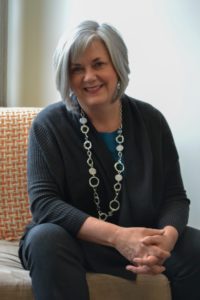Since 2017, the provincial government has been giving former foster children free post-secondary education, and Camosun College has the second-highest enrollment rates of these students of any BC post-secondary institution. Camosun vice president of student experience Joan Yates couldn’t be prouder.
“The principles and values we have as a college about being life-changing and transformational is very much borne out with students who make this decision to come to us as part of their transition into adulthood,” says Yates.
Yates says that these students’ fees are reimbursed to the college through the ministry, and that this program does not increase fees for other students.
“We’re actually reimbursed the actual cost of those students attending,” says Yates, “and so the process is managed in part through our financial aid department in terms of the grants that are available to those students, but it doesn’t come out of the college’s budget.”
According to Yates, there are 76 students currently enrolled at the college through this program; Vancouver Island University has the most, at 83. Yates says there is no cap as to how many students the college will take, although the college is happy with the current number. She says that these students must meet the admissions guidelines set out by the college.
“If students need some support to get into programs—any student, not just these students, we’ve got them,” says Yates.
Yates says that VIU has been participating in the program for several years longer than Camosun, who began a few years ago through private fundraising to support some students.
“That was reasonably successful but not sustainable,” says Yates, “and with the current government’s shift to supporting youth and former youth in care, we’ve been at it, this is year two, I believe.”
While Yates doesn’t specifically know what makes Camosun so successful with this program, she admits to having some theories.
“The big one for Camosun is that we have incredibly flexible programing,” she says. “So, if a student, for example, wants to get into a program but may be a little short on math, or English, or whatever, we have the capacity through Access programing to get students into the college.”
Yates says that another reason these students are coming to Camosun could be because the college offers a broad range of programming for southern Vancouver Island, or because of Camosun’s average class size of 35 students.
“Again, it gives students enormous flexibility in terms of their choices,” she says. “And I think also we have a strong reputation in post-secondary for good wrap-arounds, good supports. So with small class sizes, for example, it means that those students can actually get to know instructors.”
Yates says the college has also had very good relations with the local K-12 school system, where some of these students are able to start their education.
“So, there’s support that’s coming from the school system saying, ‘Given your circumstances, Camosun might be a little bit of a better spot for you right now.’”

